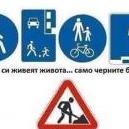ВАСИЛ ЛЕВСКИ
-
Подкрепете ни
-
Теми
-
Нов, непознат тип печат на Симеон с католическа корона доказва, че папата го е признал за император на ромеите, както свидетелствува Блазиус Клайнер 1 2
От natan, in Средновековна история
- цар симеон
- католическа корона
- (и 2 повече)
- 26 мнения
- 1407 views
-
- 4769 мнения
- 208152 views
-
Руско-украинската война 2022-2024 година. 1 2 3 4 133
От Р. Теодосиев, in Руско-украинската война 2022 година.
- 3311 мнения
- 159633 views
-
- 2691 мнения
- 156025 views
-
- 40 мнения
- 2155 views
-
-
Последно разглеждащи 0 Потребители
- No registered users viewing this page.






Recommended Posts
Напиши мнение
Може да публикувате сега и да се регистрирате по-късно. Ако вече имате акаунт, влезте от ТУК , за да публикувате.